(By Liao Xueyan, photo by Zheng Kaixing) Science knows no bounds, and exploration never ceases. How can we retain the curiosity of children and explore the unknown in science amidst the ever-changing times? On the evening of April 18, Professor Ali Zaoui from the University of Lille in France delivered a novel master series class titled “Exploring the Unknown Fields in Science” to the faculty and students. From an interdisciplinary perspective, he outlined the development of science and discussed the exploration logic of scientists.
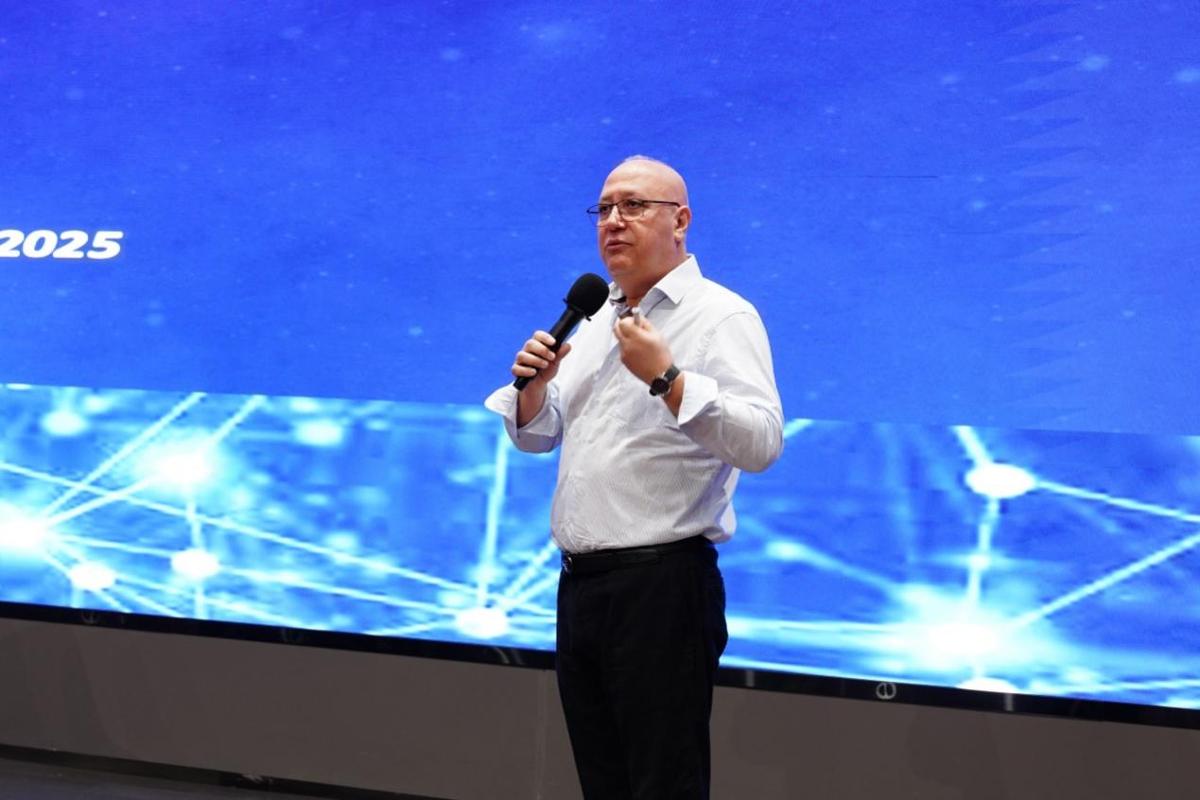
“The charm of science lies in the fact that we always stand on the edge of the known, gazing into the abyss of the unknown.” Professor Ali Zaoui began his lecture with the classic case of Isaac Newton watching an apple fall to explain what drives scientists to research — the instinctive curiosity about natural laws. From the proposal to the verification of the Law of Conservation of Energy, he revealed the basic path of scientific research: proposing hypotheses through observation, developing theories through mathematical modeling and experimental verification, and ultimately serving human society.
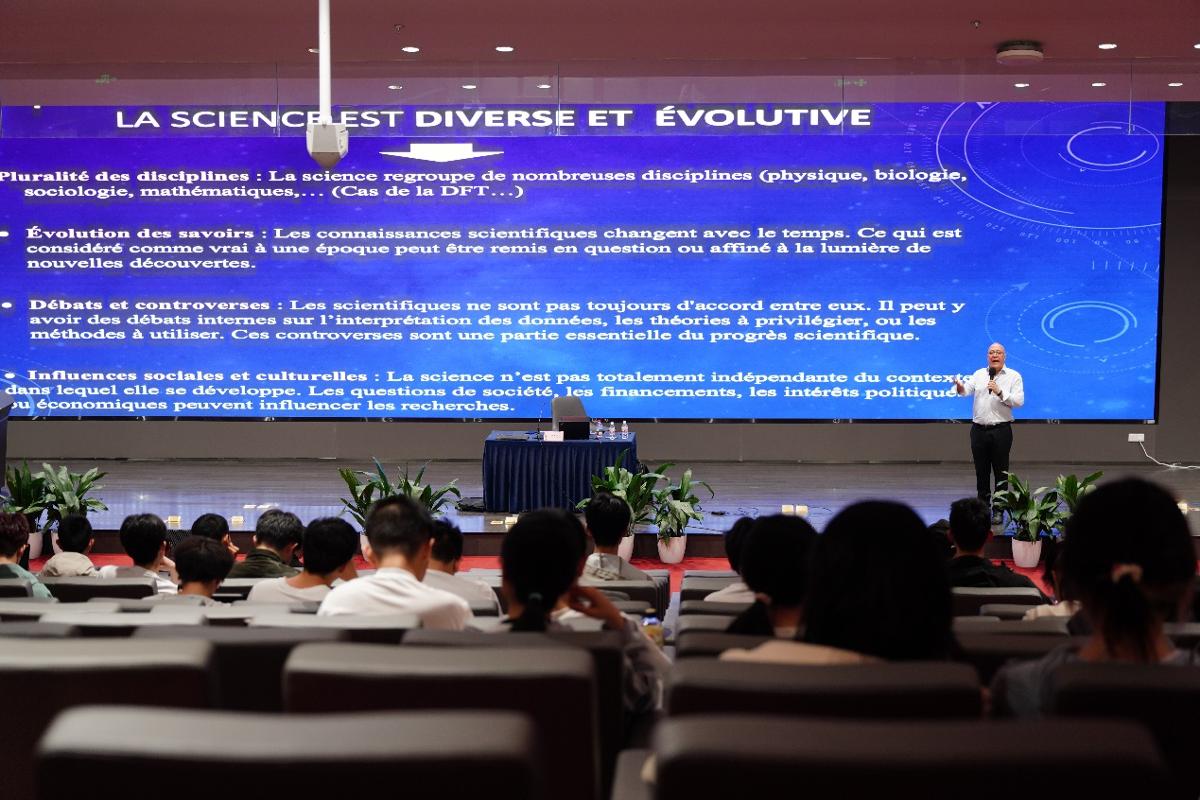
“Just as Alexander Fleming accidentally discovered penicillin, the value of scientific hypotheses often emerges through continuous verification”. Professor Zaoui emphasized that the key to translating theory into practice lies in interdisciplinary collaboration. He took Density Functional Theory (DFT) as an example. With the support of computer science, this quantum chemistry theory has evolved from a laboratory formula into a core tool for material simulation. It has promoted breakthroughs in fields such as lithium batteries and catalysts, thereby confirming that “the leap from theory to practice in science requires technological empowerment”.
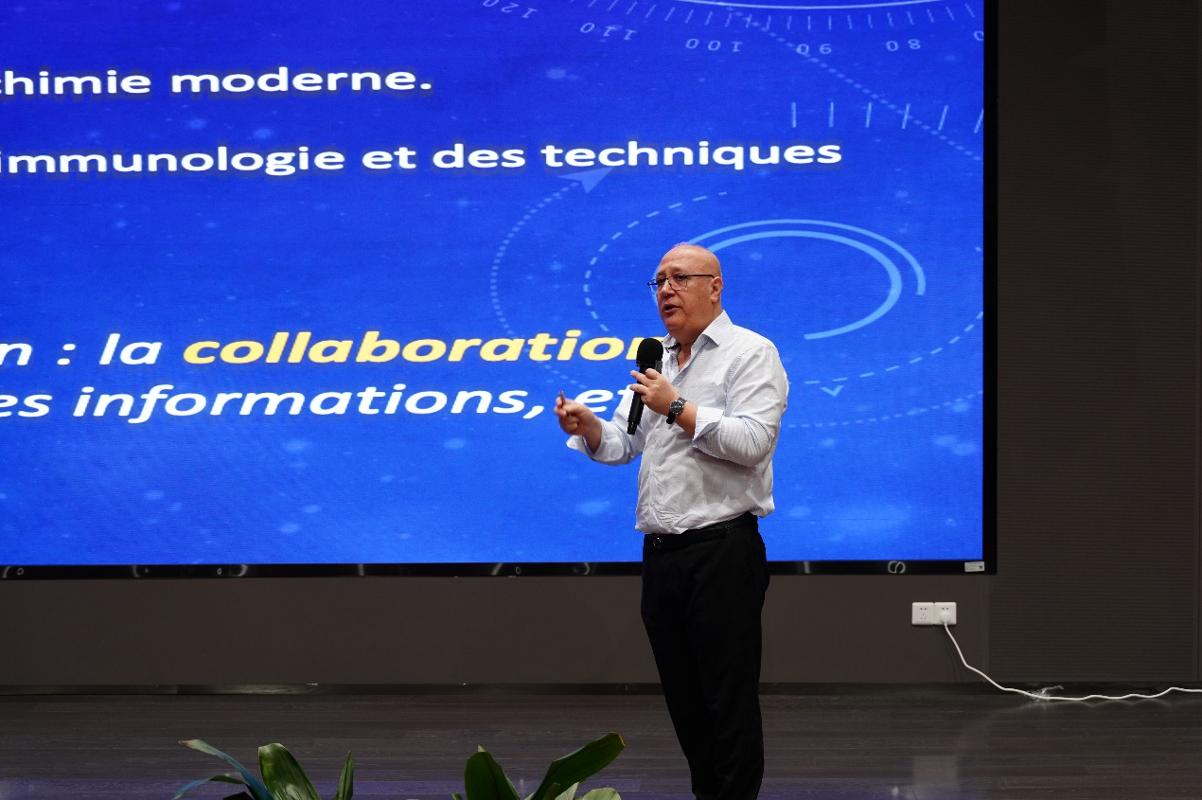
The lecture traced the history of scientific development along a timeline. Professor Zaoui pointed out that the 19th century was the “starting point of disciplinary differentiation and intersection”. Thermodynamics in physics, the Theory of Evolution in biology, and the Periodic Law of Elements in chemistry corresponded with each other to form the modern scientific framework.
Confronted with the proposition of “how to integrate scientific discoveries into daily life”, Professor Zaoui analyzed the three bottlenecks impeding the commercialization of technology: the gap between basic research and industry demand, the insufficiency of long-term funding, and the bias of the scientific research evaluation system toward the “application-oriented” approach. He called for the establishment of an integrated “government-industry-university-research” mechanism so that laboratory findings can be more efficiently transformed into productivity and learn from the innovation ecosystem of Silicon Valley.
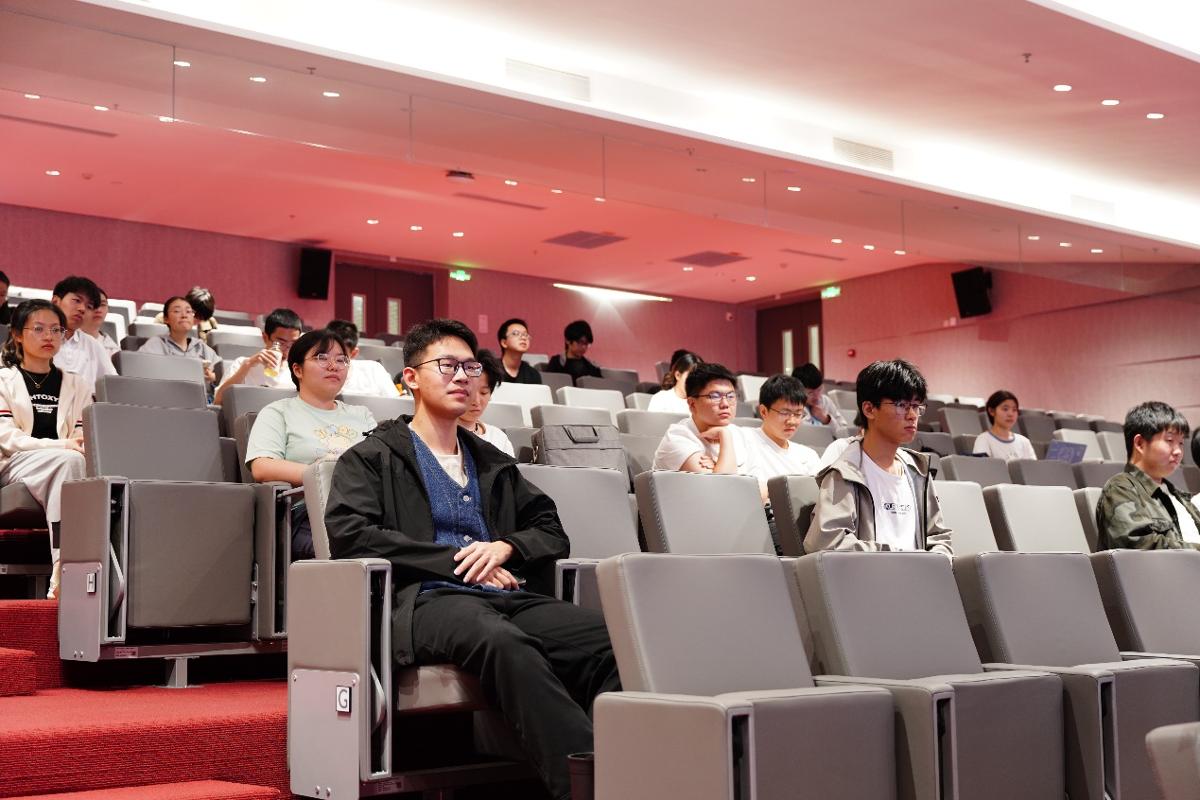
When it came to future research directions, Professor Zaoui emphasized the value of fundamental disciplines in the AI era: “Students should build a solid foundation in mathematics and physics before exploring algorithm innovation.” Drawing on his research group’s experiences and insights, he remarked with a smile, “The excitement students feel when deriving formulas is proof that their curiosity remains unquenched.” He also offered this advice to young researchers: Science requires Galileo-like persistence — even in the face of doubt, we must guard our reverence for the “unknown”.
From Newton’s laws of mechanics to the cutting-edge exploration of quantum computing, human understanding of the world has always been a confrontation between the “finite circle” and the “infinite universe”. The mission of researchers is to use curiosity as a vessel, constantly expanding the boundaries of knowledge in the cycle of “hypothesis – verification – correction.”
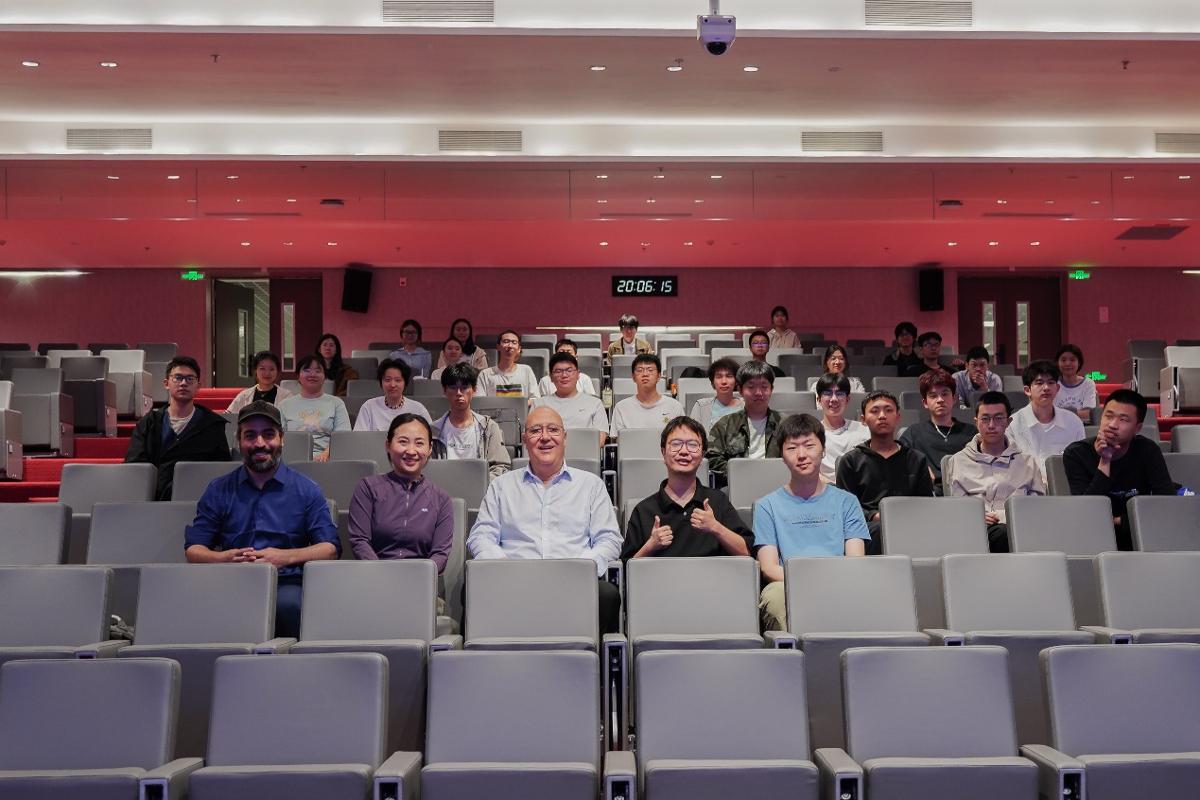
Professor Zaoui’s wonderful lecture inspired the students to reflect on the essence of scientific research and broadened their academic horizons. Let’s listen to their insights and reflections.
“Professor Zaoui’s lecture deeply moved me and prompted me to reflect: We should not only pursue our expertise in our major, but also develop our skills for interdisciplinary dialogue. For example, we should master versatile tools such as computational modeling and design thinking. The essence of future scientific research competition lies in the ability to recombine knowledge. Only by breaking free from the conventional thinking can we open up new pathways in interdisciplinary fields.”
—Zhang Shunjie, an undergraduate student enrolled in 2024
“Attending Professor Ali’s master class lecture has been incredibly rewarding. I learned about the core driving forces behind technological development and how to embark on a journey in scientific research. The lecture has inspired us to turn “curiosity-driven” exploration into systematic knowledge production and to keep questioning and probing the causal links amidst the flood of data. This is the key to breaking through disciplinary boundaries.”
—Li Yawen, an undergraduate student enrolled in 2024
When we look up at the stars with childlike wonder, the spark of science is ignited within our hearts. Only by maintaining this pure curiosity can we embark on the path of human civilization in the unknown wilderness.
Ali Zaoui is a professor at the University of Lille in France and the Fundamental Physics and Chemistry Laboratory (FPCLab) of the Hangzhou International Innovation Institute of Beihang University (H3I). He has published over 300 academic papers in international journals and is recognized as one of the top 2% most-cited scientists globally by Stanford University. Professor Zaoui employs advanced methods in the field of material modeling and simulation to study a wide range of materials. He applies first principles, molecular dynamics, and Monte Carlo methods to conduct modeling and simulation research on materials such as semiconductors.
Approved by Dong Zhuoning, Zhang Wei, Xu Ran
Edited by Yuan Xiaohui

